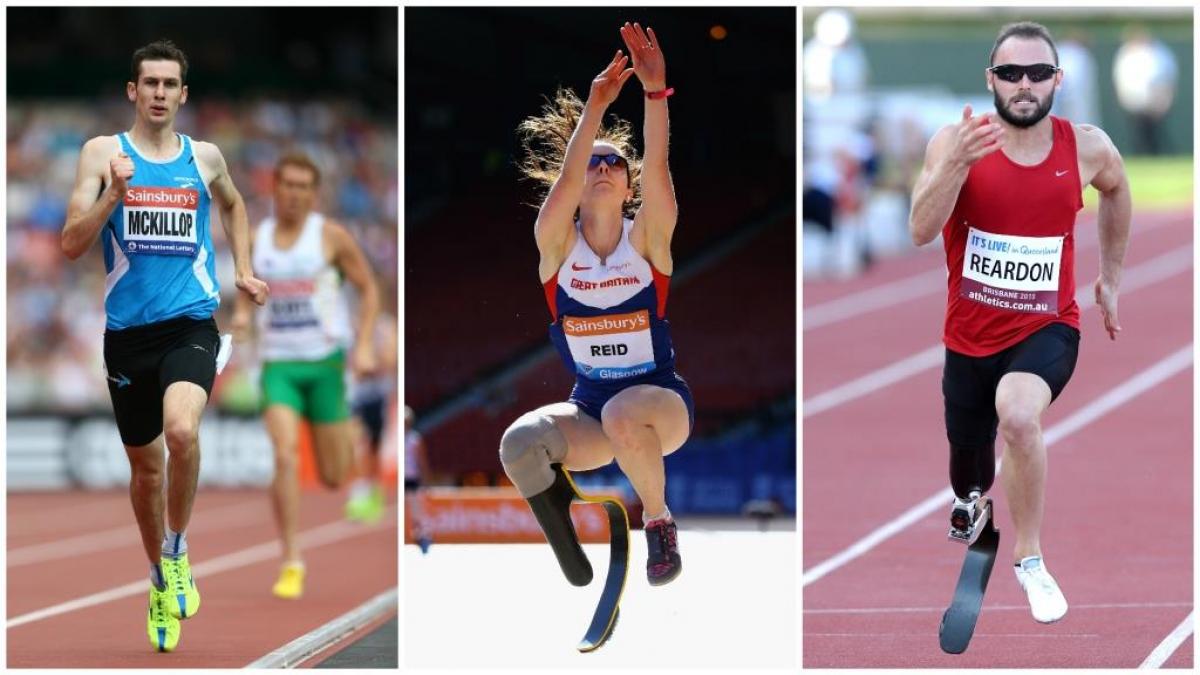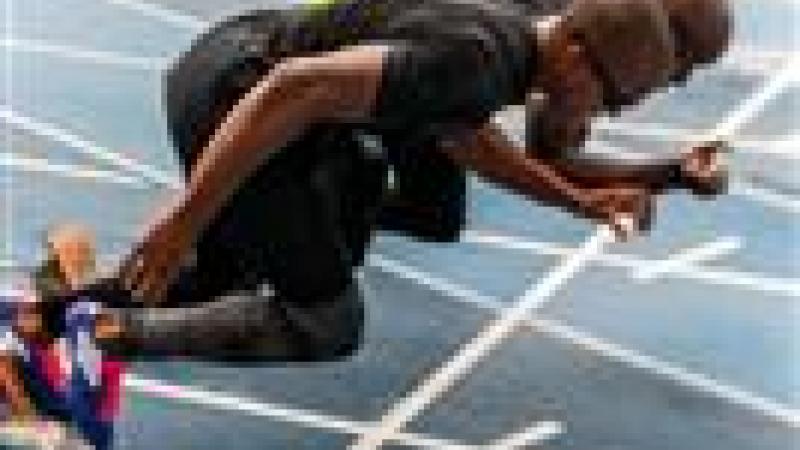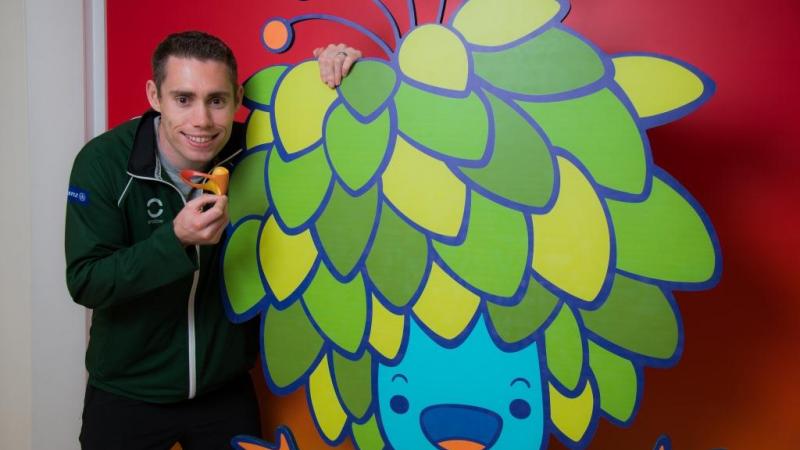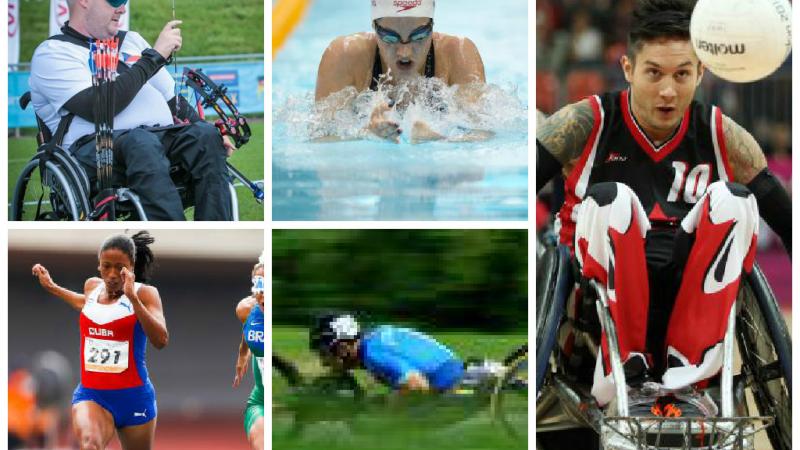Keeping it in the family: Para-athletes with strong family bonds
Find out family connections for Michael McKillop, Scott Reardon and Stef Reid are spurring them on to even greater things. 03 Sep 2015
Michael McKillop, Stef Reid and Scott Reardon.
“We can always resolve something because it’s family; we’re blood, we always stick together regardless of what happens.”
“Your parents always forgive you. They’ll always come back and be your friend and forgive you. Regardless of what happens in your life they are always there for you.”
The words of Irish middle distance star Michael McKillop echo what many of the world’s greatest para-athletes have found – that sometimes the best advice, coaching and guidance to inspire them to great feats, is found at home.
McKillop, the 800m and 1500m T37 Paralympic champion is coached by his father Paddy – a former international athlete and Northern Ireland Sports Coach of the Year.
“I think my dad drives me to be the best athlete I can be,” said McKillop.
“When I was younger I was always asking my dad what his personal bests were. Just growing up and thinking to myself I would love to beat that. I’m past that now – I’m just thinking of what targets I need to set for my son to beat me in the future!”
The tight-knit family McKillop are proof - just like former Olympic great Seb Coe and his father Peter before them – that it is possible to work hard together and to succeed. First and foremost, any problems are kept at the track.
“There’s plenty of friendly banter at training but whenever I do something wrong or I’m not hitting the target, dad is the first one there to correct me and push me harder. That is important,” said McKillop.
“He showed me growing up, giving me the same opportunities as everybody else. He put his time and effort in to me and I can’t owe him enough for what he has done for me.”
McKillop, who is aiming to extend his already huge collection of global titles at October’s IPC Athletics World Championships in Qatar, says that being coached by his dad gives the relationship a unique, and valuable perspective.
“As a dad you have instincts, you know your kids from day one. I think my dad’s knowledge of my disability and the way it affects me helps – he knows exactly when I’m tired, he knows when to push my buttons, when to go to the next level or actually to back off a little.
“He knows me inside out and that’s why we’ve been successful.”
For Australian sprinter Scott Reardon, coming from an already-successful sporting family has been one of the keys to his achievements over the past few years.
The 25-year-old’s uncle Steve Reardon was a successful sportsman who played for Australia’s national rugby league premiership side, the Canterbury Bulldogs.
Before Reardon found para-athletics, he was a talented water skier, winning world titles in 2007 and 2009. Reardon senior became a massive presence in his young nephew’s burgeoning sporting career.
“My uncle was always someone I looked up to from a young age. I remember I’d always watch him play on TV and live a few times as well.
“I guess having somebody so elite in the family is a pretty unique experience – not many people are lucky enough to have that and have their guidance,” said Reardon, who won 100m T42 world gold in 2013.
“When he retired, he came back and became my strength coach and taught me a lot of things about what was best for me at that time as far as training was concerned. Those have stuck with me today.”
With world gold and silver medals - and a Paralympic silver already to his name - it’s safe to say Reardon’s upbringing has served him well.
Great Britain’s European long jump champion Stef Reid has a slightly different take on keeping things close to home – she gets 24-hour, 365-day a year access to share her problems, fears, triumphs and glory with someone who understands completely what she is going through.
Her husband is Brent Lakatos, the Canadian four-time world T53 champion.
For Reid – there aren’t many drawbacks, just lots of positives.
“For me, the biggest benefit is when we go to World Championships and Paralympics. I have my biggest supporter and biggest source of encouragement right there with me,” Reid explained.
“I get to have that sense of home with me, whereas for other athletes, their families may come but they’re not allowed in the athletes’ village.”
However Reid acknowledges that living with another world-class para-athlete, used to performing on a big stage, can bring its own challenges.
“You have two athletes that are both incredibly determined and have to be really committed to their training and to what they need to do.
“We both need to be really selfish about it – even things like trying to work out our training schedules and who is going to do what, when.
“On one hand we are a couple that have committed to our marriage vows – you commit to being the best you can for this person - and at the same time you’ve got your own goals. It’s a huge balancing act,” she said.
It’s an act though which several stars have pulled off with huge success in recent years.
McKillop has the last word:
“In athletics it doesn’t matter if you have a good result, a bad result or the session isn’t going right. I would never turn round to my Dad and say ‘I can’t be coached by you.’
“We can always resolve something because it’s family; we’re blood, we always stick together regardless of what happens.”
The IPC Athletics World Championships will take place in Doha, Qatar, between 22-31 October with around 1,400 athletes from 100 countries set to take part.

 Facebook
Facebook
 Instagram
Instagram
 Twitter
Twitter
 Youtube
Youtube







